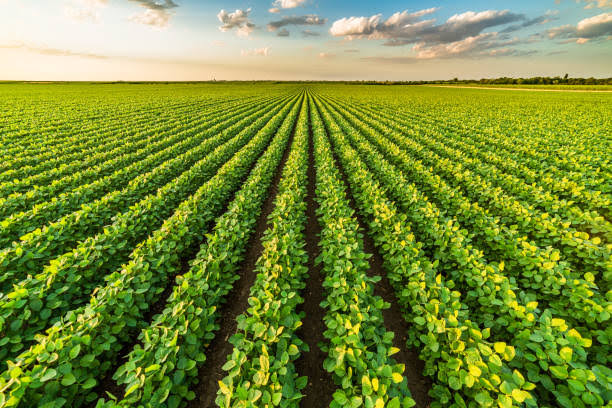By Vincent Asogwa
Unexpectedly, Nigeria, a country struggling with hunger and food insecurity, receives a much-needed lifeline from Ukraine, which is now embroiled in a lengthy battle with Russia. This remarkable collaboration emphasises the critical role that agricultural choices have in determining a country’s future.
One major policy shift that is to blame for Nigeria’s current food crisis is the secondary schools’ decision to make Agricultural Science an optional rather than a compulsory subject. Nigeria’s gracious supply of copious amounts of grain from Ukraine makes one think carefully about the differences between these two countries. Nigeria, with its sizable population, vast arable territory, and large labour force for agriculture, seems oddly dependent on a nation embroiled in war.
This seeming discrepancy might be ascribed to decisions made by Nigerian authorities on the importance of agricultural education rather than to innate inequalities. A significant turning point in the recent history of Nigeria was the choice to make Agricultural Science an elective rather than a required subject in secondary education. This little change has resulted in significant ramifications. Millions of people in Nigeria depend on agriculture for their lives, however, despite this, the number of students choosing to pursue professions in the field has significantly decreased as a consequence of agriculture’s demotion from the status of a core subject. The effects of this policy change are most apparent in rural communities where agriculture is a way of life rather than just a field of study.
There is a serious information gap about sustainable farming techniques that is being exacerbated by the waning interest in agricultural research. The loss of interest and mismatch between traditional farming methods and contemporary agricultural advancements have led to a growing disparity that has impeded the agricultural industries’ overall productivity. Nigeria must understand the vital need of funding agricultural innovation and research, even as Ukraine takes action to lessen impending food shortages.
Using advanced agricultural techniques like genetically modified crops and precision agriculture has the potential to significantly boost grain output. Nigeria may become a leader in sustainable farming practices and lessen its need on foreign agencies for food security by fostering an atmosphere that encourages agricultural interest, research and innovation.
Agriculture is impacted significantly by policy choices. Nigeria has to think about implementing farmer incentives sincerely, easily available loans, and strong market connections.
Moreover, it may be wise to make strategic investments in irrigation systems, transportation networks, and post-harvest infrastructure in order to improve the overall effectiveness and efficiency of the agricultural supply chain and reduce food losses. The impending danger of climate change affects agricultural production and food security, making it a major issue for global agriculture. Nigeria has to prioritise adaptable agricultural techniques to lessen the consequences of climate change because of its vast range of climatic zones. Achieving resilience in the face of shifting climatic circumstances requires encouraging crop types resistant to drought, putting water conservation measures in place, and training farmers in climate-smart agricultural practices.
Food insecurity has an impact on the nation’s socioeconomic structure in addition to the agriculture sector. Lack of access to nutrient-dense food is associated with stunted development in children, malnutrition, and higher healthcare expenses. A comprehensive strategy that incorporates economic growth, education, and health is needed to address food insecurity.
Though Nigeria should aggressively work to expand foreign alliances for long-term agricultural growth, the support from Ukraine is a welcome respite. Knowledge transfer, technology exchange, and cooperative research activities may be facilitated by working with countries who have succeeded in agricultural innovation.
This collaborative strategy may build a network of support that goes beyond short-term grain supply, promoting long-term growth in the agriculture industry. Nigeria is being compelled by the present situation to undertake a thorough review of its agriculture policy.
To create a comprehensive plan that addresses the underlying causes of food insecurity, policymakers must collaborate with farmers, educators, and agricultural specialists. Nigeria’s particular issues may be tailored to global patterns of success to create a strong and self-sufficient agriculture industry. For Nigeria’s future food security, agricultural science must be given more weight in the educational system. Reintroducing hands-on learning and real-world applications, together with a thorough curriculum redesign, may spark students’ enthusiasm in agriculture.
Moreover, programmes like school gardens and agricultural clubs may provide practical experience, developing a generation of knowledgeable and enthusiastic people prepared to support the agricultural industry. For the agriculture industry to be inclusive and sustainable, smallholder farmers must be empowered. Rural communities may improve their standard of living via initiatives that provide them access to financing facilities, sophisticated agricultural practices, and market connections. Smallholder farmers may bargain for better prices and pool resources for mutual gain by forming agricultural cooperatives, which can further strengthen their group power.
The use of technology in agriculture is revolutionising the industry in terms of sustainability and productivity gains. Nigeria need to make investments to encourage the use of cutting-edge agricultural technology, such as drones, smart irrigation systems, and precision agriculture. Farming methods may be revolutionised by technology to become more effective, resource-conscious, and resistant to outside threats. It is essential to raise awareness of the value of agriculture and its contribution to national development. Public awareness campaigns and educational initiatives may alter people’s opinions about choosing a profession in farming. Promoting a change in public perceptions of agriculture by presenting it as a respectable and profitable career path may draw in more people to work in the industry.
Economic development requires the agriculture sector to be diversified to include agribusiness and value addition. Nigeria need to support the development of agro-processing businesses that enhance the value of unprocessed agricultural goods.
This helps the economy as a whole and increases farmer income in addition to opening up job possibilities. Thus, it is a time for introspection and opportunity when grain imports from Ukraine arrive in Nigeria. Beyond the short-term respite that foreign assistance provides, Nigeria should use this chance to refocus its goals and implement significant agricultural changes. The partnership with Ukraine is a painful reminder that countries can unite despite differences to work towards a shared objective: guaranteeing that there is no hunger in a world endowed with resources.
Nigeria may steer towards self-sufficiency and resilience in the face of upcoming difficulties by fixing deficiencies in its educational system, embracing technology breakthroughs, and promoting equitable agriculture policy.
Asogwa writes from Michael Okpara University of Agriculture, Umudike and can be reached on +2348034232630












